Chapter 11-Muscular system notes
1/16
There's no tags or description
Looks like no tags are added yet.
Name | Mastery | Learn | Test | Matching | Spaced | Call with Kai |
|---|
No analytics yet
Send a link to your students to track their progress
17 Terms
Muscle that move the upper arm
the biceps branchii flexes the forearm (elbow), while the triceps branchii extends it.
Muscle of mastication
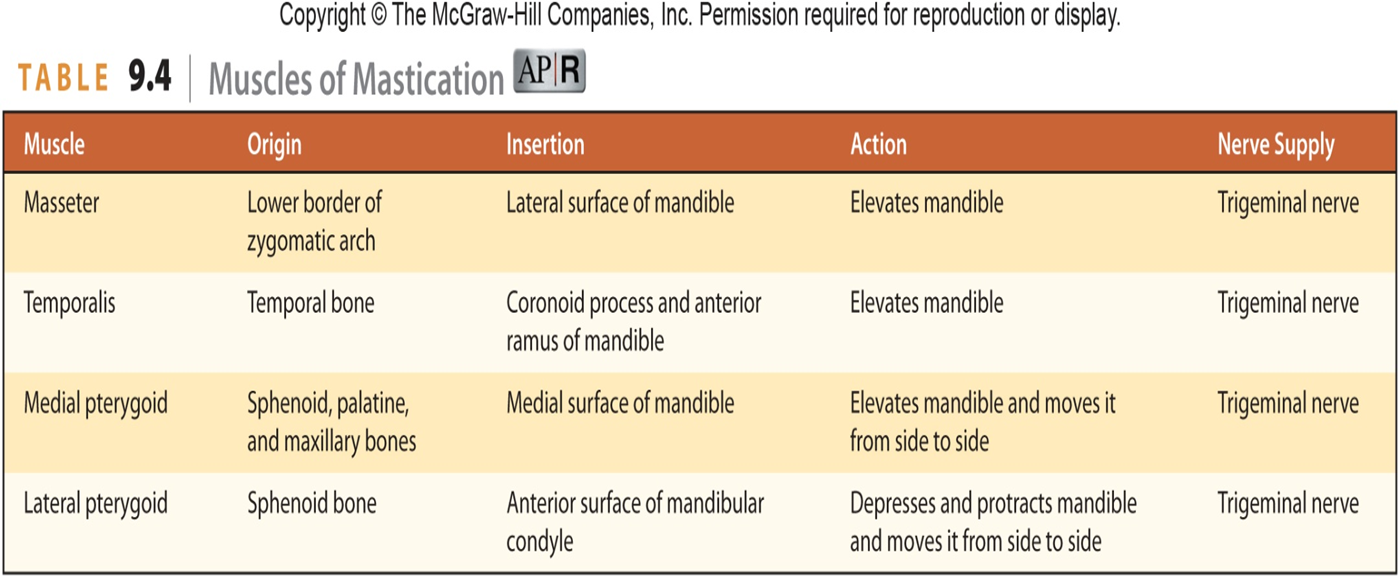
(Location: over lateral mandible), temporalis
Muscles That Move the Head and Vertebral Column
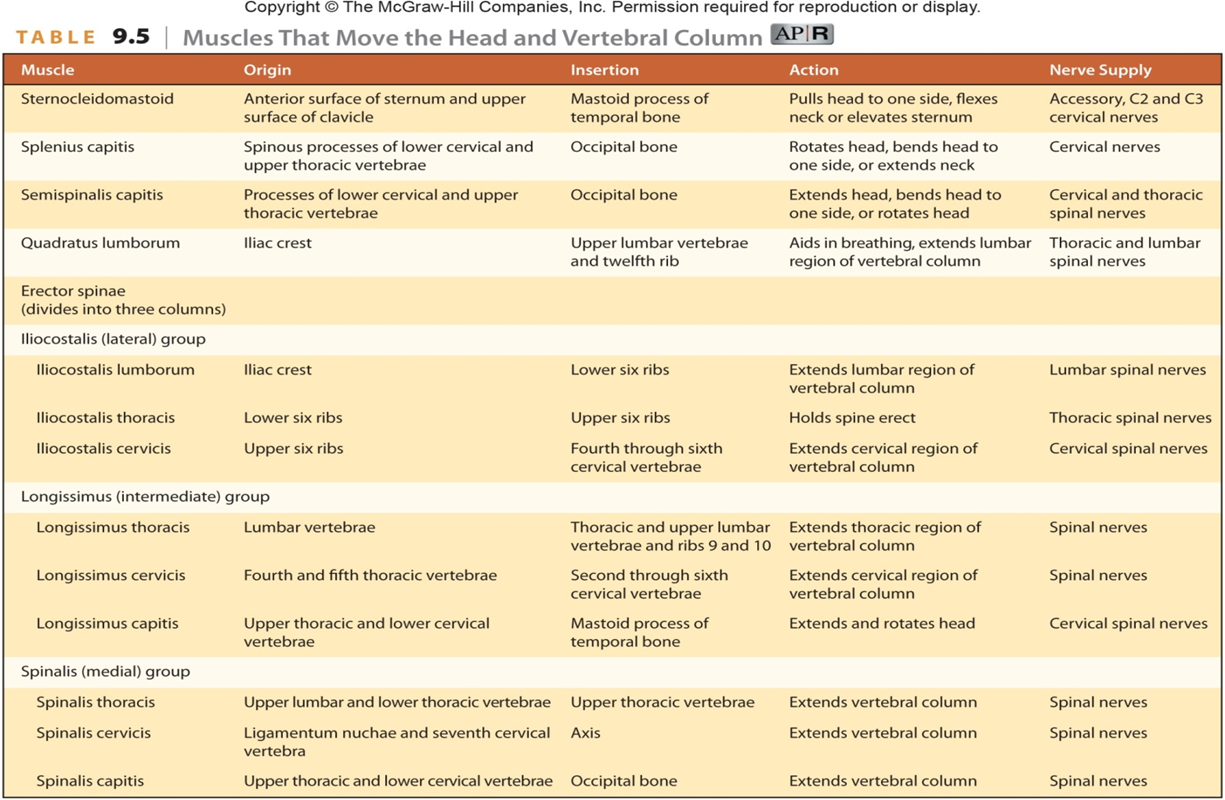
sternocleidomastoid (location: Major neck muscle); Longissimus group
Muscles That Move the Pectoral Girdle
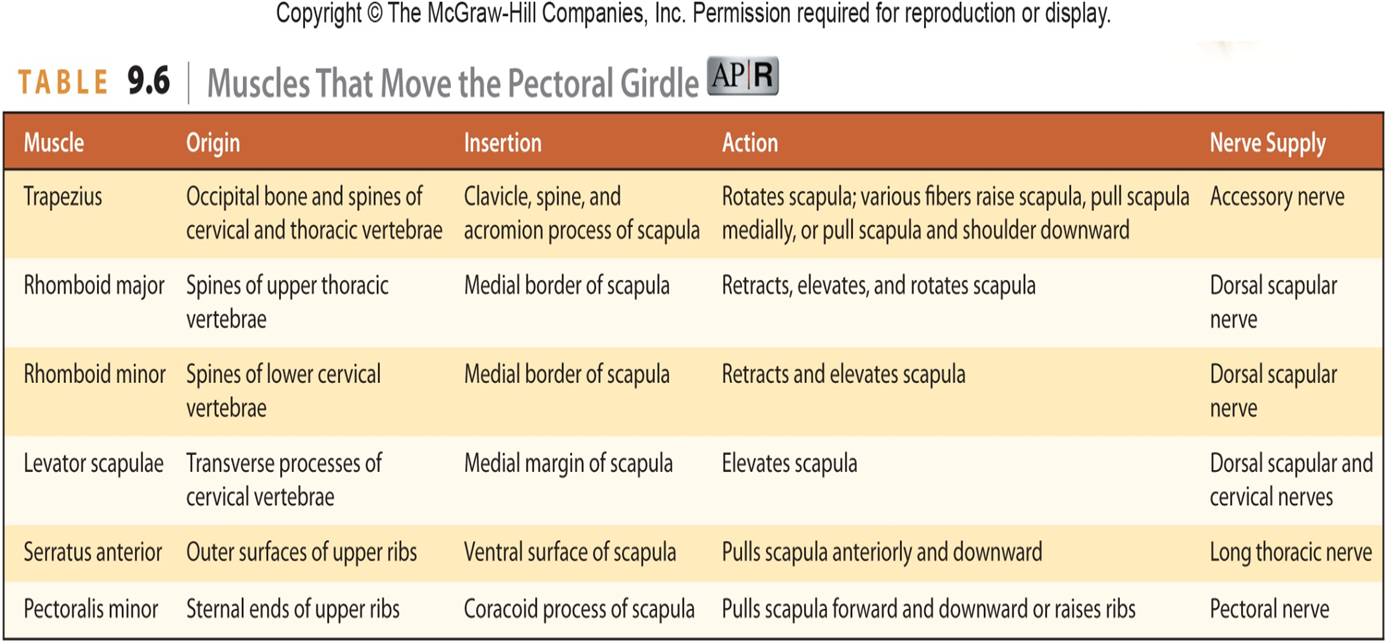
Trapezius, Pectoralis minor
Muscles that move the arm
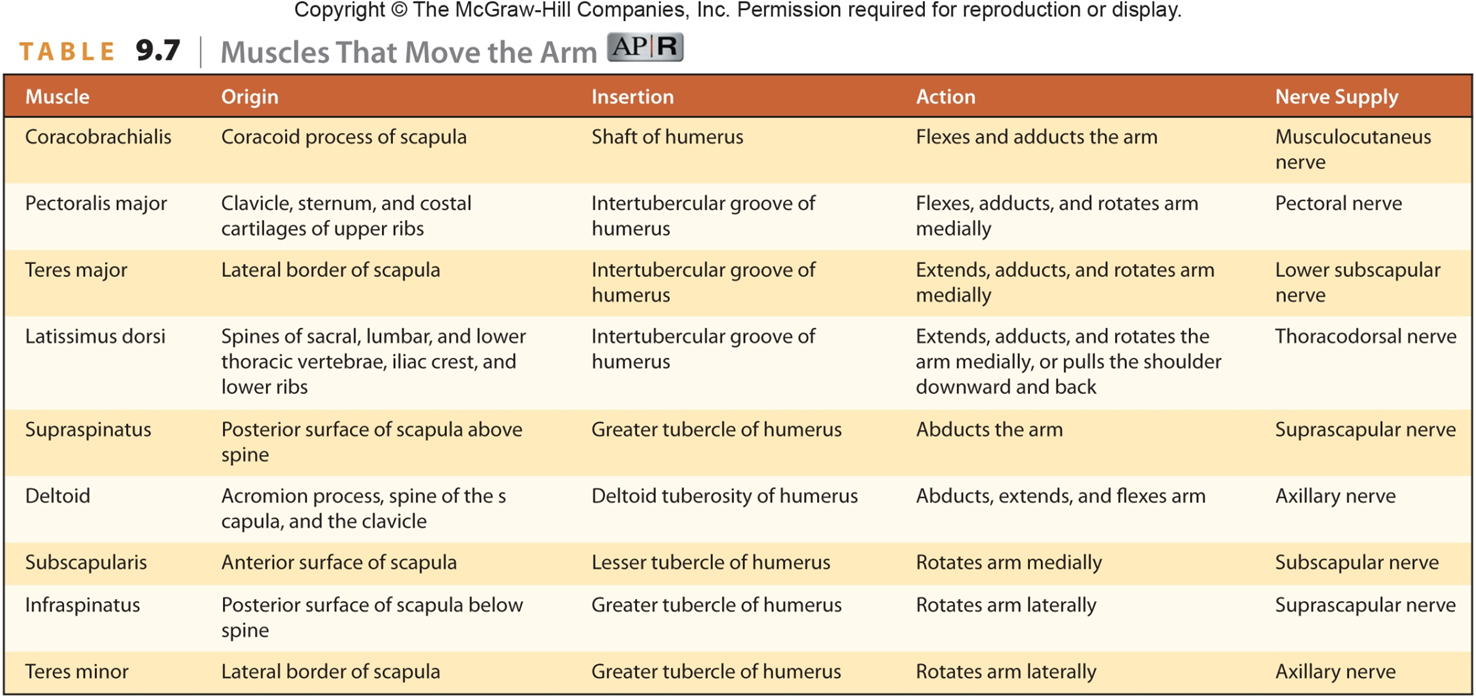
Deltoid, the pectoralis major and latissimus dorsi; Rhomboid major
Muscles That Move the Forearm
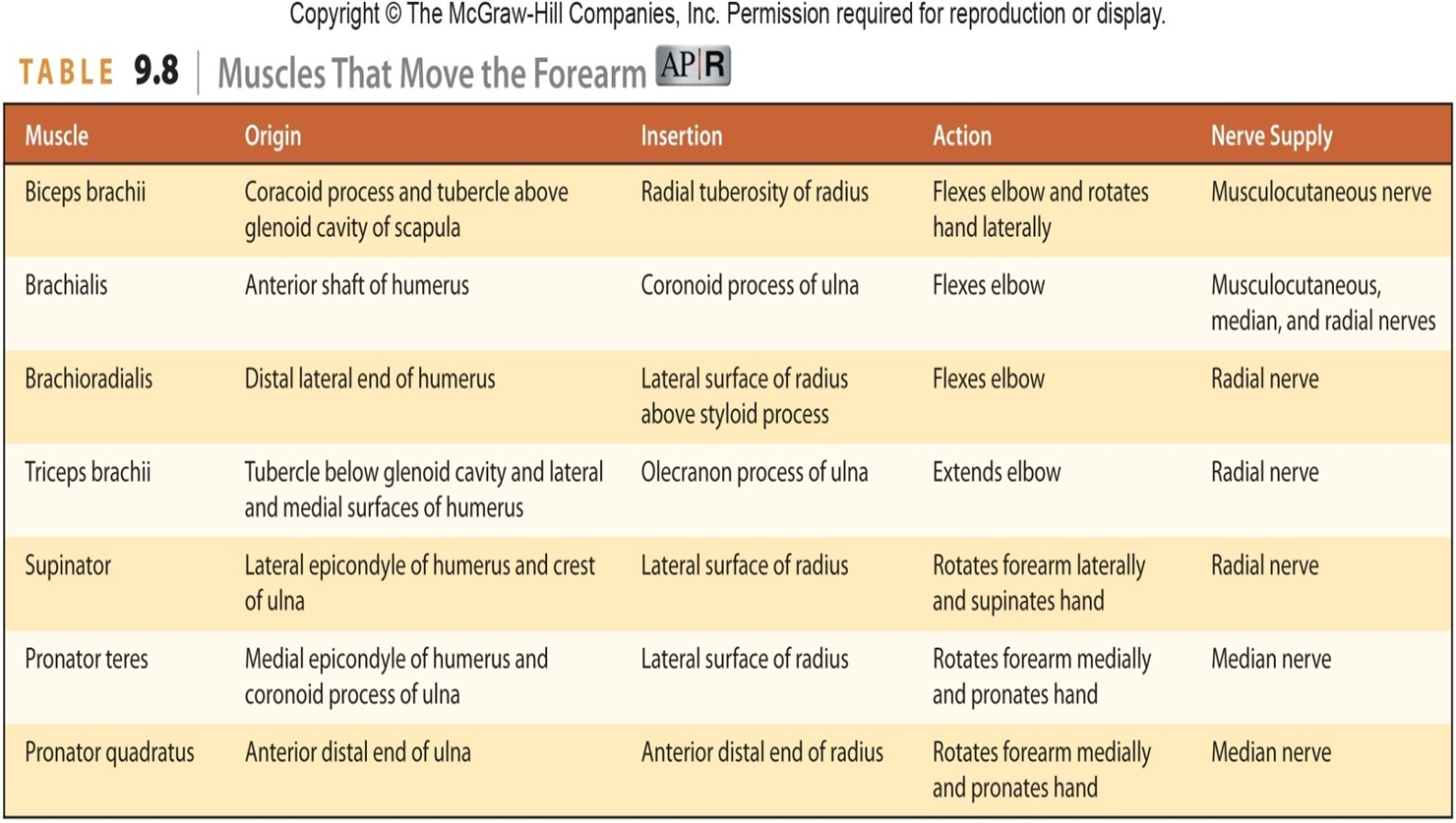
Muscles That Move the Thigh
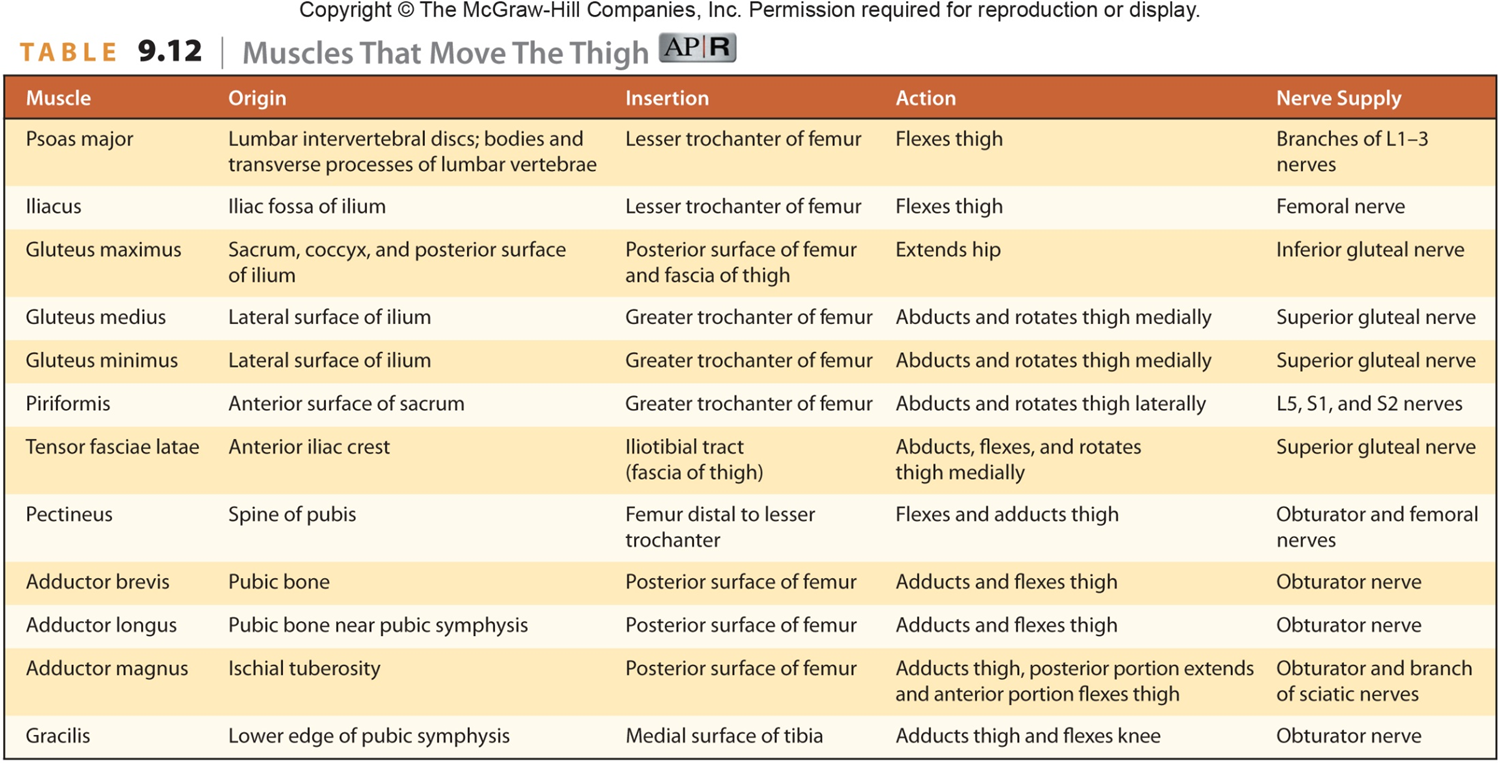
Gluteus maximus, gluteus minimus, piriformis, gracilis
Muscles That Move the Leg
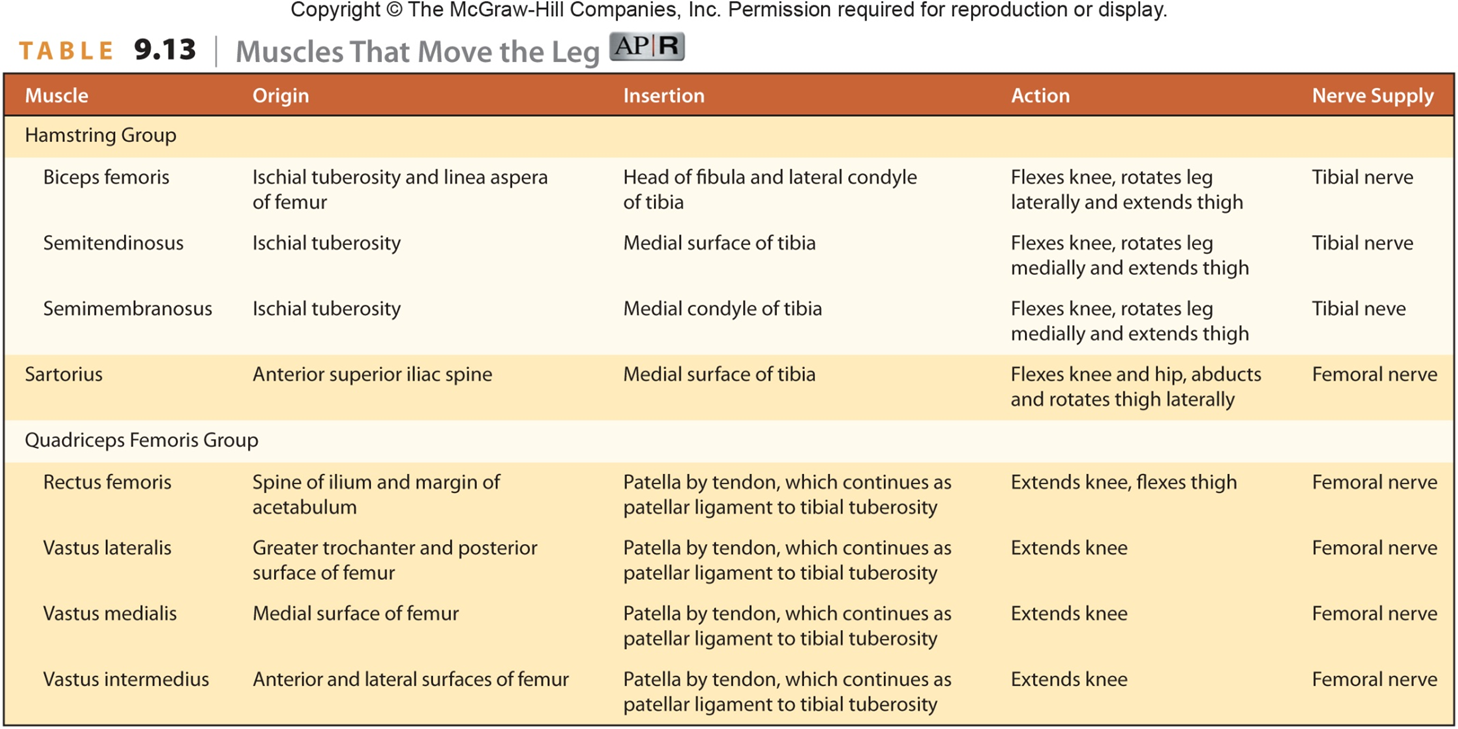
Hamstrings and Quadriceps femoris group
Muscles That Move the Foot
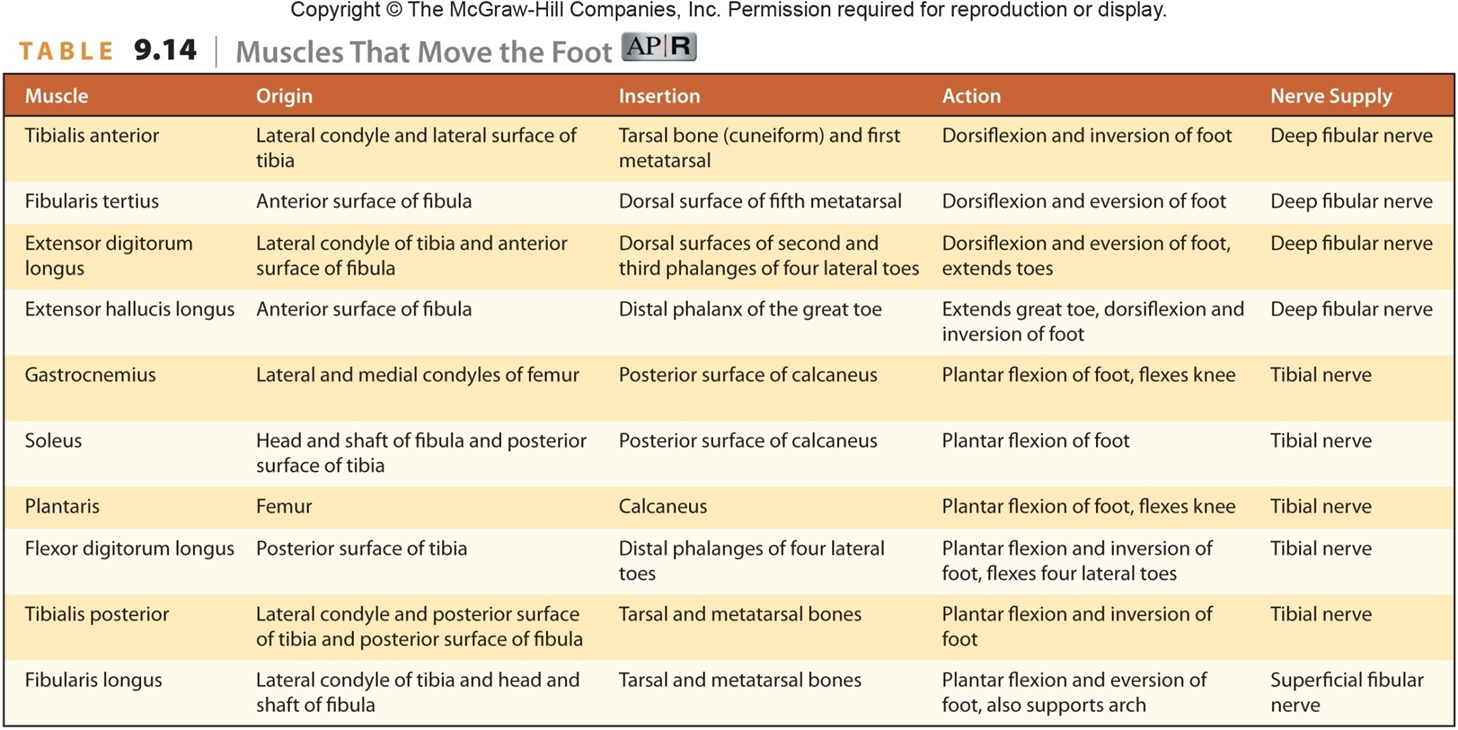
Gastrocnemius, Soleus, Plantaris
Temporomandibular joint syndrome:
Symptoms: pain infront of ears, persistent pain in the facial muscles on one or both sides, difficulty opening the mouth. Most common cause is strain to the temporalis muscles that open and close the jaw.
Temporomandibular joint is a hinge joint that joins the mandible, or jawbone , to the temporal bone of the skill. Causes insomnia, ringing in the ears, backache, clicking sound from the jaw.
Temporomandibular joint is a hinge joint that joins the mandible, or jawbone , to the temporal bone of the skill. Causes insomnia, ringing in the ears, backache, clicking sound from the jaw.
Muscle cramp
sudden painful spasm-or tightening-of a muscle, the affected muscle’s hardness to the touch.
The discoloration and swelling of a muscle strain is due to
ruptured blood vessels.
Low Protein and Low Exercise =
Sarcopenia
Consequences of Sarcopenia
Decreased resting energy expenditure
Decreased insulin sensitivity
Decreased muscle mass and strength
Increased risk of physical disability
Increased risk of falls
Increased risk of mortality
The serve pain of compartment syndrome is caused by too much fluid in the
compartment
Compartment is the space that contains a particular groups of muscles, blood vessels and nerves, all tightly surrounded by
fibrous tissue (fascia)